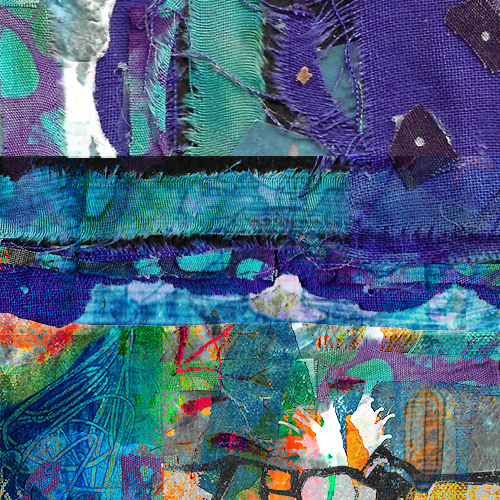Valet Parking
Short Story
by Shome Dasgupta
“Do your job,” he said, casually tossing the keys. “Just do your job.”
Calico tried his best to multitask—catching them while trying to register what the man dressed in a prim and proper suit had just mentioned.
They landed in his hand.
“Yes, sir,” Calico said, as he watched the man walk away, hair slicked and shiny.
Even in the dark, he noticed the sparkle of the jeep—polished and clean, quietly gleaming under a starry night.
You need this job—you’re finally back on track. Stable. Rhythm—routine. Just do your job.
The engine sounded smooth and calm. Calico headed toward the parking garage at the back of the restaurant—he turned the corner and hit a pedestrian. It was horrific enough that he ran into someone on the street, but it was that much worse when he stopped and looked at the body on the ground.
“Mom?”
He hadn’t seen her in five years.
Calico looked around—there was no one, just the two of them in the alley. He rushed out the car.
“Mom? Are you dead?”
A grunt and a cough—she turned herself over, her back against the road.
“No, you fuckin’ idiot.”
“Hi, Mom.”
“Yes.”
“Are you hurt?”
“Who are you?”
“Calico—you’re son.”
“What the fuck.”
“I know.”
Calico crouched down and put his hand on her shoulder—she shrugged him off with another grunt. There were scrapes on her face and palms—those that were visible, at least. He looked back at the car, wondering if there was any damage.
“Are you looking at the car?” Mom asked.
“I don’t know.”
The night sky looked like a series of waves—tides and ripples eroding the stars.
“Let me help you,” Calico said, pulling her up by the arm.
He brushed off the bits of gravel stuck on her clothes.
“You look great, Mom.”
“Thanks, son.”
He turned back around and looked at the jeep again, shuffling his feet. The headlights were still on, creating this ghostly shadow of his mother.
“Where you’ve been, Mom?”
She rubbed the back of her head.
“Yeah—sorry about that, son. I’ve been staying low these days.”
Years, Calico thought.
“Have you seen Dad? Have you talked to him? Where is he?”
“Never.”
Mom jumped up and down a few times and pulled out a cigarette from her coat. Calico took out a lighter, holding it up to her smoke and flicked it a couple of times before the flame sparked.
“Is that your jeep?” Mom asked.
“It’s my job—I work valet for that restaurant,” Calico said, pointing to the side of the building.
“Job?” she replied. “Well, look at you—all grown up and working. I’m proud of you, son.”
“Thanks, Mom.”
They both looked up, as if the moon was waiting for them. Calico studied her face, glowing in the headlights. She looked younger to him—the creases of her skin appeared to have faded away, and her voice sounded stronger and less hoarse.
“Say, Cali,” Mom said. “How about a ride to the bus station?”
He immediately thought about his job and the owner of the car, and how he was so happy to get this new position with steady pay—steady enough to pay rent and pick up groceries, however meager.
“I don’t know, Mom—I’m back on track, and I want to stay that way. It feels so nice.”
Mom laughed—a mother’s laugh.
“I understand.”
They stood in silence, barely looking at each other. Calico’s thoughts wavered as he looked at his mother’s nose and chin—her wrists and her waist, one that he would cling to when she was around, and he was much younger.
“It’s good seeing you, son,” Mom said. “Just watch out for those turns.”
She patted him on the back—the headlights revealed her teeth, bright and sparkling. Calico took himself back to when he was in the classroom—young—and learning about time in math class. He calculated, mouthing numbers as he figured out how long it would take to get to the bus station and back—forty minutes or so, thinking that the owner of the jeep would still be dining. Clocking off for his thirty minute break—telling the supervisor that he forgot to log it in if she asked when he returned, all in all, he would be about ten minutes over. That wouldn’t be too bad, he thought. He watched his mom turn the other way.
“Hold on, Mom,” Calico said. “I can take you.”
“Now, son—I don’t want to get you in any trouble. You go back to the restaurant—it looks fancy, too. We don’t even know each other anymore. You’ve moved on, and I haven’t crossed the street yet.”
Calico walked to the jeep and opened the passenger door—he smiled.
Without speaking, Mom sat inside—looking angelic to Calico as she walked toward the headlights.
On the way to the bus station, Calico asked her how much trouble she was in.
“It’s probably best you don’t know, son.”
“Did you kill anyone?
“No—of course not. Well, no.”
Calico assumed it had something to do with money.
“Where are you going?” he asked.
“It’s probably best you don’t know, son—the less you know, the better. I mean that for your sake.”
“You’re still my mom, aren’t you?”
“Every now and then,” she said, laughing. “I’m sorry, son—but it looks like you’re much better off without me. Look at you.”
They pulled into the parking lot—Calico was correct in his calculations, if not, a bit earlier than he had expected.
“I’m sorry I hit you, Mom.”
“I’m not, Cali—it was the best thing that has happened to me in years.”
“Do you need some money?”
“No, son.”
Calico took out his wallet—all he had was twenty-two dollars. He was going to buy dinner and breakfast with that, but maybe he can get some tips when his shift ends at the restaurant. He hoped so, at least.
“Here, Mom.”
It was dark, but Calico thought that he saw tears in the hint of a distant light, just as she would happily cry when they lived in a home together years ago, like the time he made her a card out of construction paper and glitter. Or, he pretended to see tears as the night heavied itself upon them.
“Maybe a hug?” Calico said.
Mom shook her head, giving a nervous chuckle.
“Not yet, son, but I promise we will—we will when I’m better. I’m not sure when that will be—a year, two years, five years. We will when I feel like a mother. I promise. I’ll embrace you and never let go.”
“You’re always my mom, Mom.”
Taking the cash, she broke into a full cry, and rushed out the jeep toward the bus station, and that was it. Calico watched her walk away, hoping that she would turn around. Nothing. He still waved as she disappeared into the hollow night.
As he was driving up to the restaurant, just as he was about to make the turn, he saw the owner of the jeep step outside, and Calico pulled up in front on him.
His slick and shiny hair was unkempt—there was a grin on his face as Calico stepped out the car.
“Now that’s perfect timing, son,” the man said. “That’s how you make your way to the top, like me. Just do your job.”
“Yes, sir,” Calico said.
The man patted him on the shoulder and took his keys. No tip. He watched the man speed off, but it didn’t matter to Calico. He wasn’t hungry—he wasn’t worried about dinner or rent or anything else. His thoughts were with his mother—a family reunion like no other, and he pictured her face as she sat on the bus heading toward every direction away from him, but he knew his mom never broke a promise.

About the Author
Shome Dasgupta is the author of The Seagull And The Urn (HarperCollins India), and most recently, Atchafalaya Darling (Belle Point Press), The Muu-Antiques (Malarkey Books), Tentacles Numbing (Thirty West), and Iron Oxide (Assure Press). His writing has appeared in McSweeney’s Internet Tendency, The Emerson Review, New Orleans Review, Jabberwock Review, American Book Review, Arkansas Review, Magma Poetry, and elsewhere. He lives in Lafayette, LA and can be found at www.shomedome.com and @laughingyeti.
About the Artist
Kate Horsley’s illustrations are made from a combination of collage, ink and watercolour paintings and fabric. She has taught photography workshops for a number of years in the UK and France, specialising in alternative processes like wet cyanotype, wetplate collodion, gum bichromate and polaroid emulsion lifts. Kate’s main subject-matter is the natural world and she experiments with handmade botanical inks, prints on birch bark, hand-coloured images, and prints made from leaves, flowers and grasses. Visit Kate’s website here.


